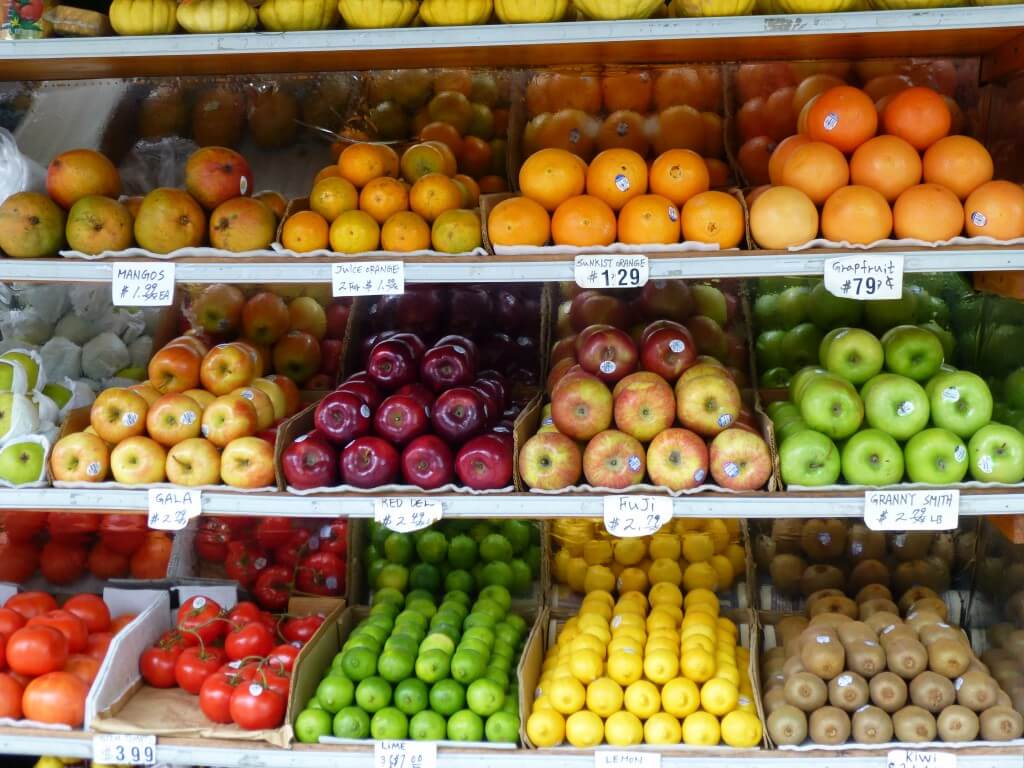Achieve Success One Bite at a Time with Certified Sports Dietician Rachael Sokolic
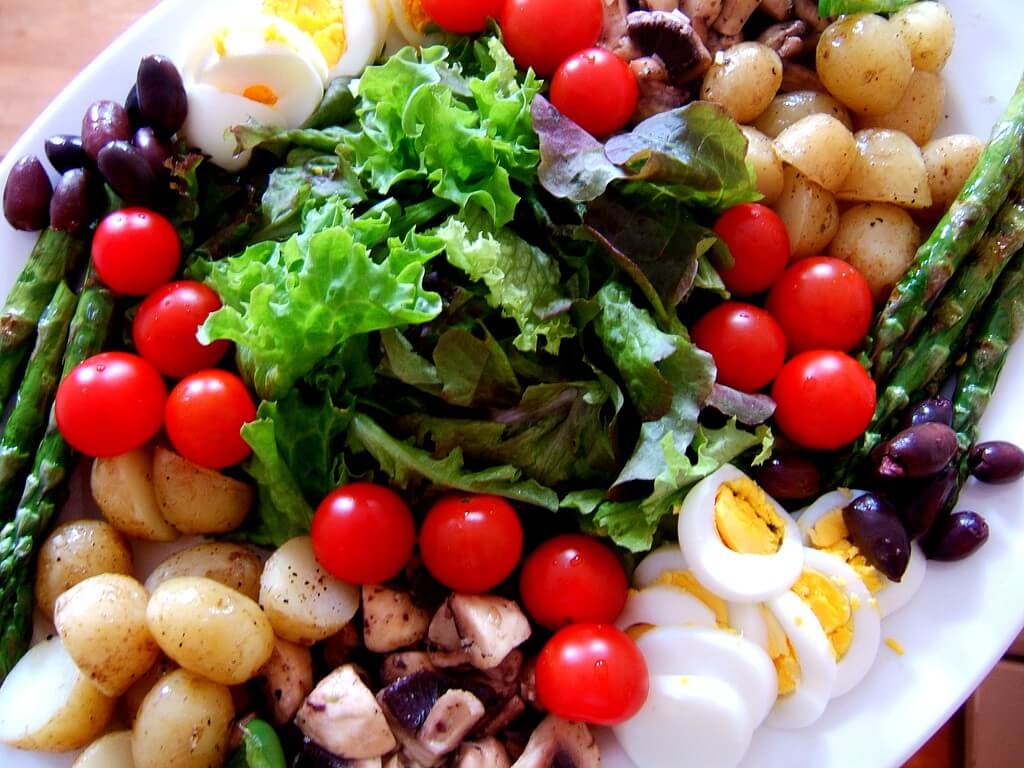
By Madeline Ladd, Swimming World Intern.
Championship season is quickly approaching, yet again. For many swimmers, this entails multi-day meets and long, hot days. It is times like these – the combination of nerves, fatigue, and adrenaline – when nutrition is more important than ever. Swimmers, just like all other athletes, have to properly fuel their bodies in order to perform to the best of their ability.
All the effort given by a swimmer leading up to the meet should be able to pay off and not be limited by poor food choices. That is why it is vital for an athlete to be mindful of their nutrition and know not just what to eat but also what to avoid. When it comes to nutrition regarding athletes and adults, Rachael Sokolic (RD/CSSD), Co-owner and Nutrition Program Director at Marinos Fitness, gives professional insight into what to eat before, during, and after meets.
Preparation Before
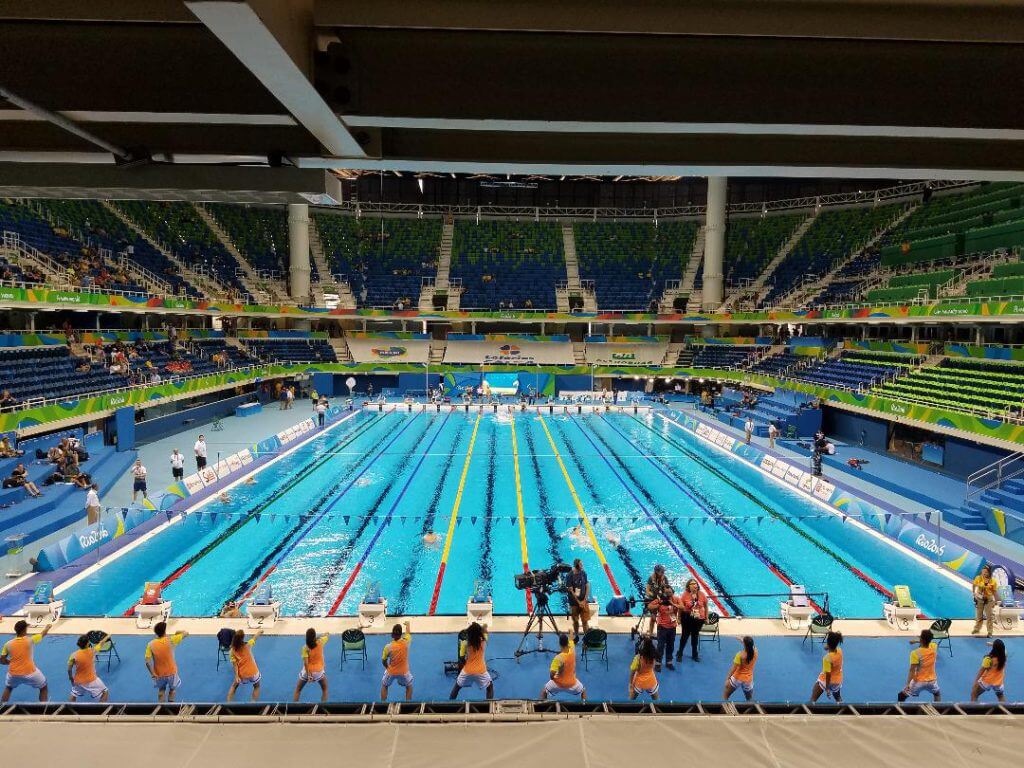
Photo Courtesy: Molly Griswold
Sokolic claims that it is not only what an athlete eats to prepare on the day of a meet but also what he or she eats to fuel themselves for practices.
“The longer the practice, the more fuel you need in the form of simple carbohydrates. A simple carbohydrate easily breaks down into usable glucose (energy) to fuel your practice. Hydration is equally important and more frequently overlooked, because you’re in the pool. A great way to fuel and hydrate is with a sports drink that provides carbohydrates, fluids, and electrolytes, which are lost when you sweat.”
Even on the days when a swimmer may not be practicing or going to a meet, regular everyday nutrition is just as important in regards to athletic performance.
“Sports nutrition truly allows an athlete to have a competitive advantage. I’ve worked with several athletes who changed their daily intake and saw a huge carry-over to their athletic performance. Whole foods (real foods) are more nutritionally dense (provide vitamins, minerals) and harder to breakdown. The better fuel you put in the machine, the better the machine runs.”
Sokolic highly recommends keeping a food journal in which meals and snacks eaten are logged in addition to swimming performance. This can give athletes an idea of what food choices positively or negatively affect their performance, and how they can make beneficial adjustments.
Day-of Breakfast

Photo Courtesy: Rachael Sokolic, @marinosathleticperformance
When it comes to the first meal on the day of a meet, Sokolic suggests a breakfast that is filled with complex carbs, heart-healthy fats and lean protein. Usually this meal should be eaten two to three hours before arriving at the meet.
Healthy Breakfast Examples:
- Whole grain pancakes with natural peanut butter and a side of low-fat Greek yogurt.
- Whole grain toast with two poached eggs, avocado and tomato
Snacking During Meets
Photo Courtesy: Mike Licht, flickr
“Low fiber, high carbohydrate,” Sokolic puts simply when referring to snacks that should be eaten during meets. She emphasizes the importance of portion size and suggests to aim for around 30-60 grams of carbohydrates. This can be confirmed by looking at food labels or using calorie-counting apps to view the nutrition information. “You want a readily available source of glucose for when you’re standing on the block.”
Snack Examples:
- Fruits: Bananas, strawberries, grapes, watermelon, nectarines, peaches, cantaloupe, honeydew, papaya.
- Fruit juice and sports drinks
- Gummy candy: Sour Patch Kids, Gummy Bears, Swedish Fish
Sample serving size:
- Banana (medium) – 27 grams carbohydrates
- Peaches (2 large) – 30 grams carbohydrates
- Gummy Bears (15 bears) – 30 grams carbohydrates
Recovery Meals
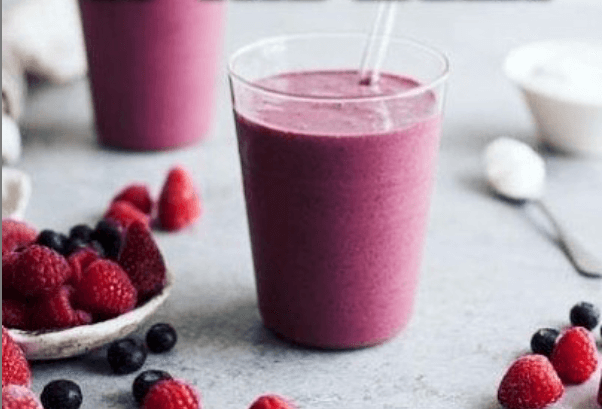
Photo Courtesy: Rachael Sokolic, @marinosathleticperformance
The night after your meet, you probably want to go home and indulge in something that would not be considered a “good” food choice. However, it is important to remember that it still matters what you are putting into your body after the bulk of the day is over, especially if you have an additional day of competition. Sokolic stresses that dinner should always consist of a lean protein, two to three servings of vegetables, and one to two servings of whole grains and a heart healthy fat. She also emphasizes that you should eat something on the drive home from the meet that is a carbohydrate and lean protein.
Drive Home Examples:
- 16 ounces low-fat chocolate milk and a piece of fruit.
- Turkey sandwich on wheat bread with 4-6 ounces of turkey, lettuce, tomato and hummus as a spread.
- Protein shake: fat free milk, 1 cup low fat Greek yogurt, banana and 1 cup frozen strawberries.
Dinner Example:
- Turkey tacos: 4-6 ounces ground turkey made into taco meat. 3-4 whole grain tortilla shells, lettuce, tomato, salsa, fajita vegetables and guacamole.
What to AVOID
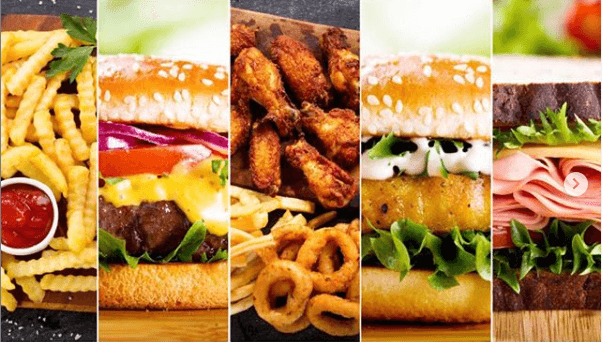
Photo Courtesy: Rachael Sokolic, @marinosathleticperformance
Sokolic emphasizes that athletes should absolutely avoid fast food and other high fat, low nutritional foods (such as cookies, cakes, and candy bars). “Yes, they provide calories (energy), proteins, fats and carbohydrates, but they aren’t the best quality. Some athletes may experience gastrointestinal stress with high fat, highly processed foods which can affect their performance.” Sokolic’s motto is: “Junk in equals junk out.”
Struggles with Eating?
Many swimmers and other athletes struggle with eating the day-of as well as the days leading up to a meet. Sokolic recommends to identify the root cause of this struggle. Could it be nerves? Stomach issues? Athletes who struggle with race day stress often feel like they cannot eat. There are several ways Sokolic says this can be dealt with: visualization, meditation, or talk therapy.
If stress is not the cause and an athlete simply doesn’t want to feel “full” before a meet, Sokolic recommends drinking your calories. Homemade protein shakes and sports drinks offer calories and carbohydrates that help fuel athletes and provide another alternative to hard food. In regards to struggles with eating on the day of meets, Sokolic emphasizes that swimmers need to “find out the root cause in order to focus on a solution.”
“What’s important to remember is that you need fuel in order to make the machine (your body) work. Try driving your car without gas. It doesn’t go. You are the car and the gas is your food,” she explains.
The Bottom Line
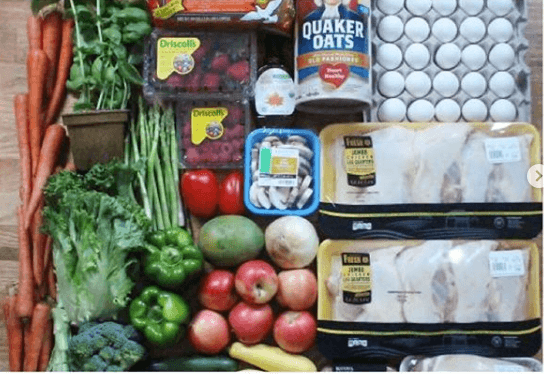
Photo Courtesy: Rachael Sokolic, @marinosathleticperformance
Nutrition is vital in swimming, just as it is in any sport. Long meet weekends often present challenges, and nutrition can be put on the backburner. Swimmers must recognize that nutrition is a very important part of their athletic performance, and it is not something that should be overlooked. Properly preparing for a meet does not only lie in the effort one puts in at practice and in the training room but also in the choices made at breakfast, lunch and dinner. As Sokolic’s motto “junk in, junk out” says, the foods you consume will either help or hinder swimming performance. It is up to the athlete to advocate for themselves when making food choices. However, athletes do not have to go through this alone. Sokolic suggests seeking out a Registered Dietitian who is also a CSSD (Certified Specialist in Sports Dietetics):
“Every athlete is unique and has specific needs. Start implementing healthy eating habits during the week. Never try a new nutrition strategy the day of a meet. Focus on eating real, unprocessed foods and stay adequately hydrated. Find a professional who can help you come up with a specific plan for you and your sport.”
-All commentaries are the opinion of the author and do not necessarily reflect the views of Swimming World Staff Magazine nor its staff. All research was conducted by the author.




